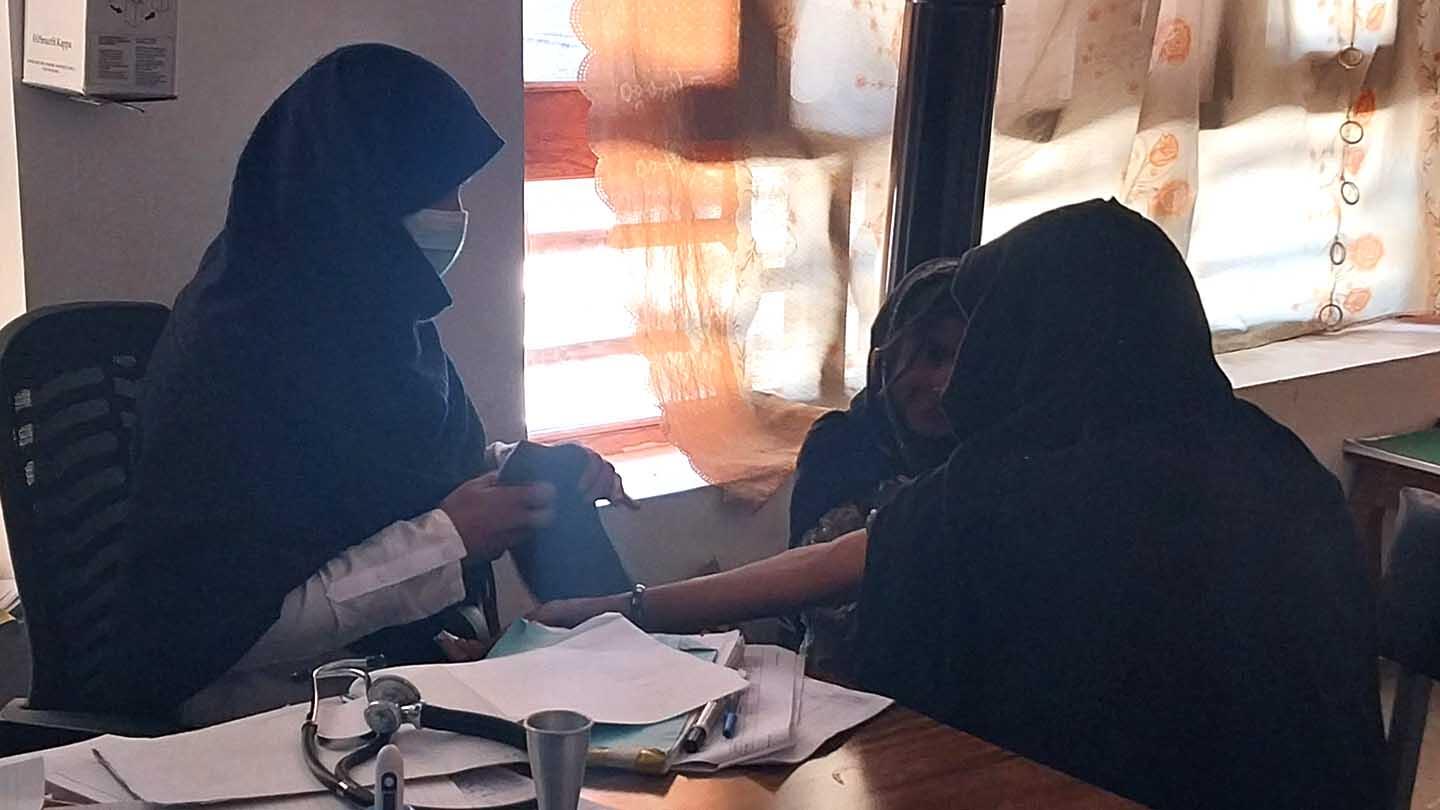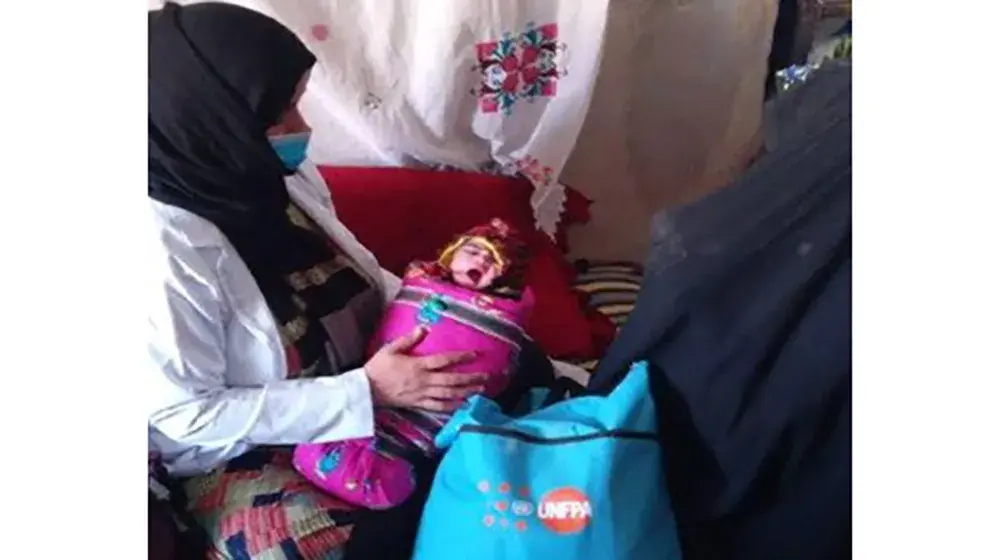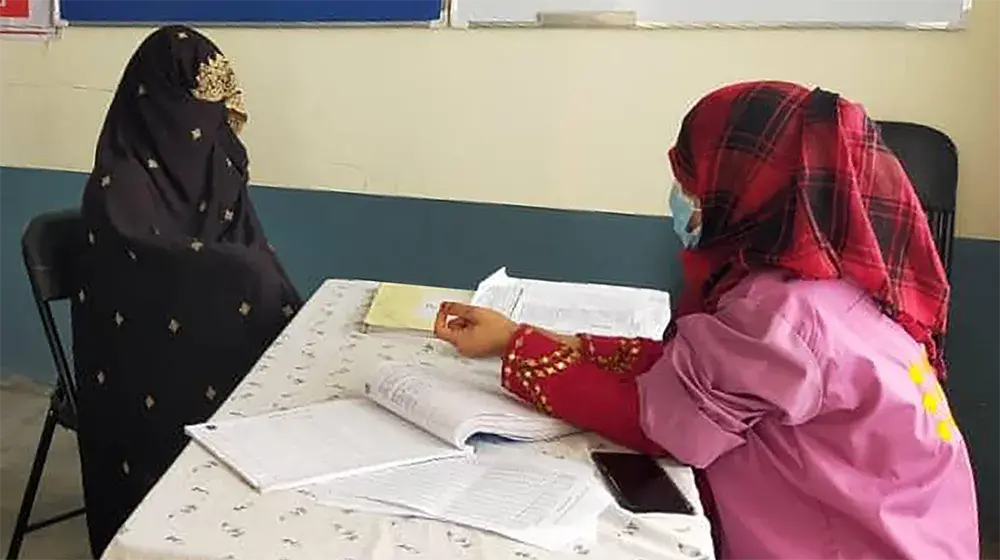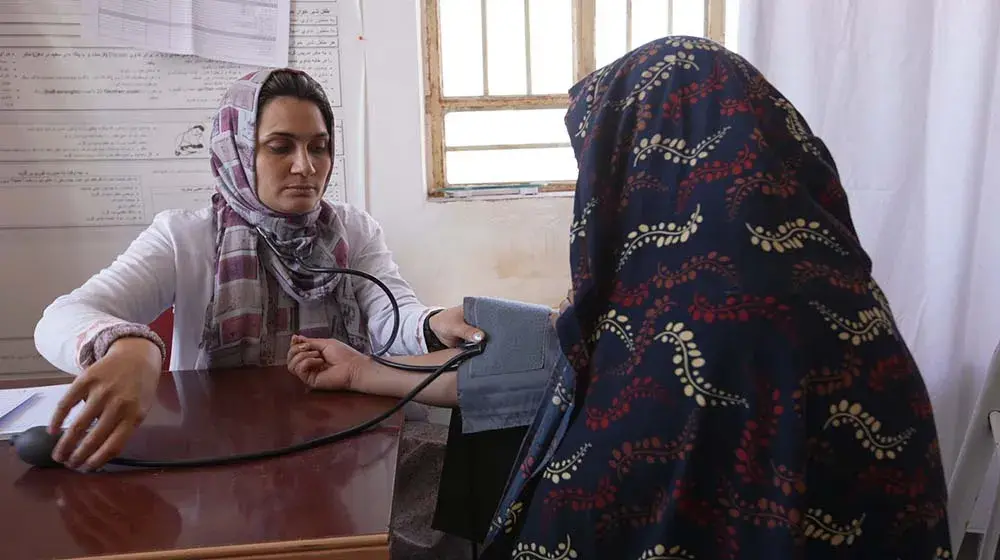Paktia, Afghanistan – Zahra* a 27-year-old mother from the remote village of Beshgul Ghaara, lived in silent agony for years. Struggling with problems in her urinary system, including the painful and uncontrollable passage of urine, she endured a condition that left her physically and emotionally drained.
Ashamed and unsure, she kept her suffering a secret—even from her family.
“I thought the problem would go away on its own,” she reflects. “I didn’t have the courage to speak about it to anyone, not even my husband.”
As Zahra’s symptoms worsened over time, so did her fear and distress. Eventually, her husband noticed her growing discomfort and gently encouraged her to seek help. “He told me about a local clinic and asked if I wanted to go for a checkup. I finally agreed,” Taraksana recalls.
At the Beshgul Ghaara Family Health House (FHH), supported by UNFPA with funding from the Government of the United Kingdom, a midwife examined her and diagnosed with obstetric fistula, a severe childbirth injury that often leaves women stigmatized and isolated. While the midwife offered temporary relief through medication, she explained that Zahra would need advanced medical care, available only in the city.
“It was a huge challenge for me to go to the city,” Zahra admits. “I didn’t have the money for transportation, and I didn’t know where to go.” Armed with a referral letter from the FHH, she and her husband embarked on a long journey.
“When we arrived at the hospital, I was treated with so much kindness,” she shares. Her stay at the hospital lasted six days, during which she underwent surgery and received the care she desperately needed. “They even covered the transportation costs,” said Zahra with relief.
For Zahra, the surgery marked more than physical recovery—it was a turning point in her emotional and social well-being. Back in her village, her story encouraged other women who had silently endured similar conditions to come forward. Within a month, two neighbors also sought help at the FHH and were referred to the city hospital for treatment.
“This wasn’t just a cure for me,” Zahra explains. “It opened a door for other women to seek help for their own health.”
Zahra’s experience highlights more than personal healing. With access to care, education, and encouragement from the family and caregivers, more women in rural regions of Afghanistan now have an opportunity to take care of their health.
Obstetric fistula is associated with devastating lifelong morbidity with severe medical, social, psychological and economic consequences. But it is highly treatable, usually through reconstructive surgery. Following surgery, a holistic approach should be made available to the survivor to address her psychosocial and socioeconomic needs to ensure full recovery and healing.
*Name changed to protect the subject's privacy.





